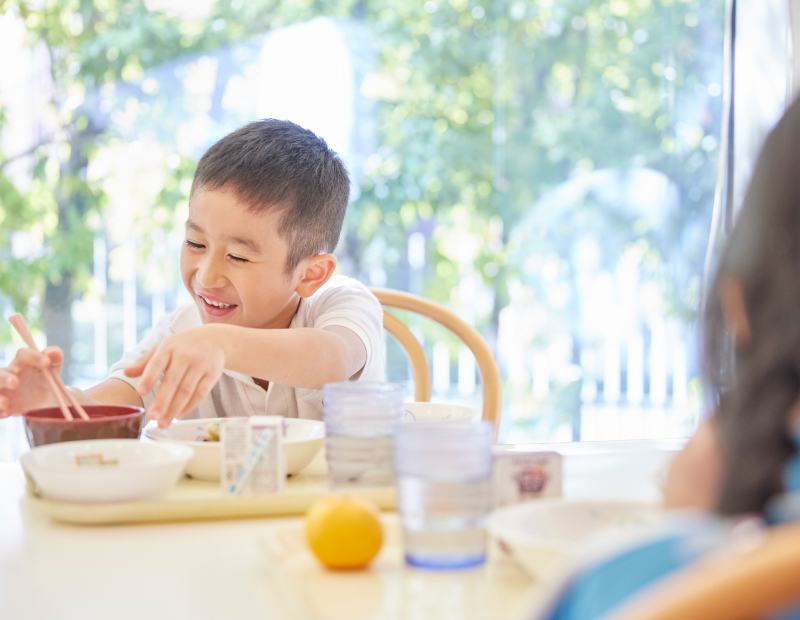
At Linden Hall School, both elementary and high school students consume vegetables and rice grown in organic and chemical-free local farms, fresh eggs gathered that morning at local poultry farms, as well as domestically produced meat and fish. Every morning, fresh vegetables are delivered, which we cook in the elementary and junior high school cafeteria kitchens.
Our decision to provide organic school lunches came with various hurdles, such as identifying and collaborating with the suppliers, balancing costs, and reconsidering the menu (for example, to use only vegetables in-season).
Many kinds of vegetables are needed to make a balanced school lunch. Although certain organic vegetables can be grown easily, obtaining the amount needed for a school-wide lunch every day is easier said than done.
With the cooperation of local farms that support the idea of growing organic vegetables to promote youth’s physical development, Linden Hall School, registered dietitians, and chefs have joined forces since 2020 to provide the first year-round organic food service at a school in Japan. *
As part of our Shokuiku, or food and nutrition education programme, students compost vegetables and fruit skins leftover from school lunches, and use the product on the school grounds to grow more vegetables. This has helped students to better understand environmental systems and raised our awareness of environmental and food wastage issues.
*In January 2020, Linden Hall Elementary School made the switch to serve organic lunches. In January 2021, Linden Hall High School followed suit.

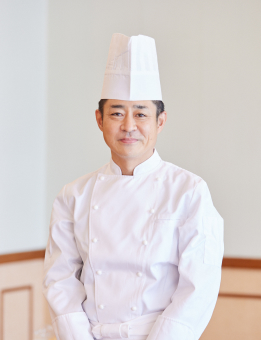
Head of the Food Service Department
After learning the art of Western and Japanese cuisine at hotels and restaurants in Japan, Kota Sugimoto travelled to France to train at a one-star restaurant. After returning to Japan, he worked as the head chef at several hotels and restaurants, and in 2010, he became the head chef of Tsuzuki Ikuei Gakuen.
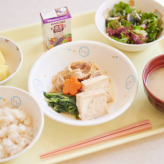


The lunches at Linden Hall School are made by a team of farmers who grow organic vegetables, nutritionists who advise on menus that balance nutrition suitable for youth's development and seasonal ingredients, and cooks who ensure that the meals are tasty.
Organic school lunches inherently incorporate nature’s seasons. While most school lunches use ingredients available at any time of the year, organic school lunches must take into account what vegetables are in season.
Furthermore, compared to commercially available vegetables, organic vegetables must be grown and handled with special care. However, we do not wish to compromise on the quality of the food we serve, as we believe strongly in the great impact of what youth consume on their development. I have had the honour to be involved in this project since its inception, and the idea of organic school lunches has only become reality through much experimentation, trial and error. As a chef, I take great pride in being able to provide our students lunches that use organic, locally-produced vegetables full of vitamins and minerals.

Registered Dietitian
The lunch at Linden Hall School is mainly Japanese food. Compared to Western food, Japanese food has a good nutritional balance of vitamins and minerals, and it is a menu that I want to serve especially to children. Washoku (Japanese Food), which is characterized by its well-balanced healthy diet, has been registered as UNESCO Intangible Cultural Heritage. Children tend to like Western food. No matter how nutritionally balanced food is, it is meaningless if it is not eaten, so we are trying to prepare Japanese food in a way that children will enjoy. While avoiding menus that tend to focus on fat, which are common in Western food, we are constantly thinking of variations of dishes which use many combinations of ingredients. In the future, when students become adults and choose what to eat, I would be happy if students could take advantage of their experience at school lunch, be aware that their bodies are made of food, and to take care of their body.

Professional Chef
After serving as assistant chef at ANA Hotel, he became a chef at Linden Hall Elementary School.
Organic vegetables, especially root vegetables, grow to absorb nutrients from the soil so these vegetables have a more natural flavor. While preserving the original taste and texture of the vegetables, we try to cook them in a way that students will enjoy and look forward to eating. I am a graduate of a hotel restaurant, and since school lunch is a daily meal, I value lightly seasoned home style cooking, rather than the professional hotel restaurant taste. Every day, I try to cook food that makes the students smile.
Our school does not use any dairy products in our school lunches. A registered dietitian has carefully designed our menu so that it includes the appropriate amount of calcium from ingredients other than milk. For potages and other creamy dishes, we use soy milk and soy cheese, which are both rich in protein.
We are also particular about the seasonings we use. Our miso and soy sauce is additive-free, our vinegar is organic, our oil is made from non-GMO rapeseed, and our sweetener is cane sugar. Each of these seasonings is ordered from different, carefully selected, stores.
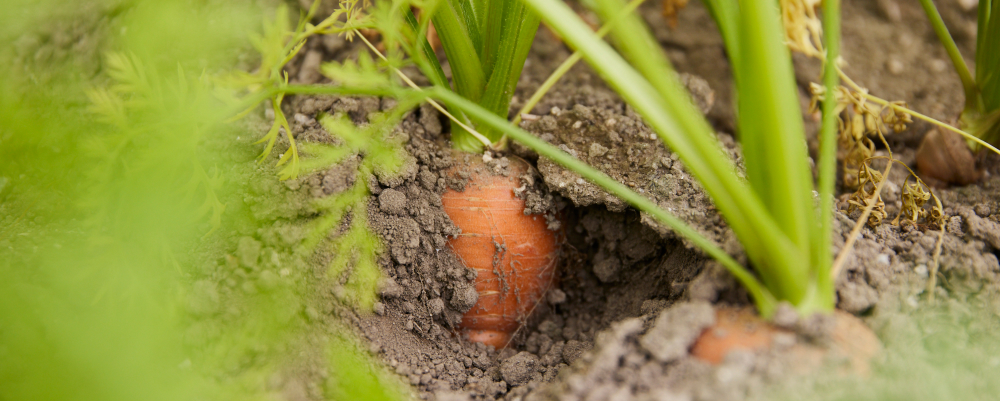
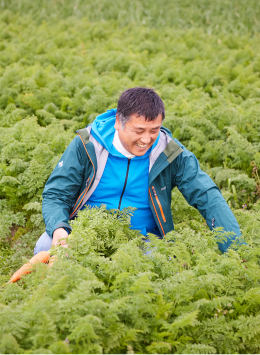
Organic Papa Co., Ltd. / Representative Director
General Incorporated Association Organic Papa Unity / Representative Director
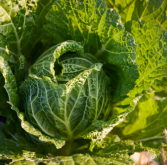
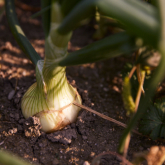
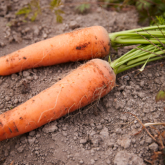
All the crops grown on our farm are organic and completely pesticide-free. We have adopted farming methods that closely resemble the processes that occur in nature, which are also those used in Japan before the advent of chemical farming methods. These methods mimic the relationship between plants and soil in nature. We employ fertiliser composed only of plant-based materials such as fallen leaves, material leftover after pruning, and sawdust. These carbon-based materials are returned to the soil, where they are decomposed by microorganisms and absorbed as fertiliser by plants. Preparing high quality soil is critical for organic farming. The crop absorbs nutrients from this high quality soil, resulting in nutritious vegetables filled with vitality.
The reality is that there is a vast difference between the amount of time and effort needed to grow food crops using conventional farming methods versus organic farming methods. However, we cannot close our eyes to the fact that more than 90% of the human body is made up of water and proteins, which are formed from the food we consume. We need to ask ourselves, “What do we want to form our bodies of?” I think that organically grown food is the most obvious answer. For youth at the peak of their physical development, what they eat is even more critical. By providing youth at this important developmental period organic meals, the next generation can form not only healthy bodies, but also a healthy palate. I feel it is our mission and responsibility as adults to serve healthy food.
Most chemicals we consume accumulate in our bodies and are not excreted. It is thought that this continual accumulation of chemicals is causing many “modern” health issues such as allergies, eczema, and mental health problems. I give lectures at schools about the effects of dietary habits, and I think Shokuiku is the best way to inspire our society as a whole to go organic. I feel that Linden Hall School, which takes the realisation of organic school meals as well as food and nutrition education so seriously, puts first the needs of its students. I cannot help but be compelled to support its vision.
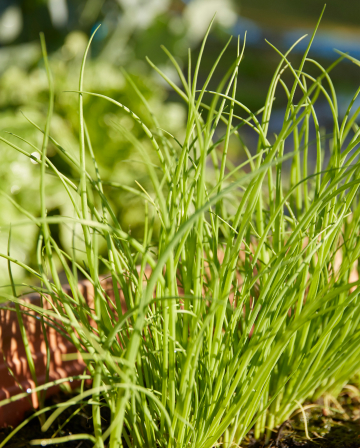
In addition to providing organic meals, Linden Hall School also has put great effort into providing Shokuiku. Every year, Grade 4th students compost vegetables and fruit skins from school lunches. This compost is used to grow vegetables in the school's field where students can observe their growth, and present them in the “Life Skills” class. We also hold a baked sweet potato party for Grade 2nd students and invite Grade 1st.
These efforts are also an opportunity to gain an understanding of the recycling-based system, to foster the wisdom of using all the ingredients and to understand the preciousness of food, and to raise awareness of environmental and food loss issues.
We also offer classes on eating etiquette by registered dietitians as part of our Shokuiku for Grade 1st students.


Loading